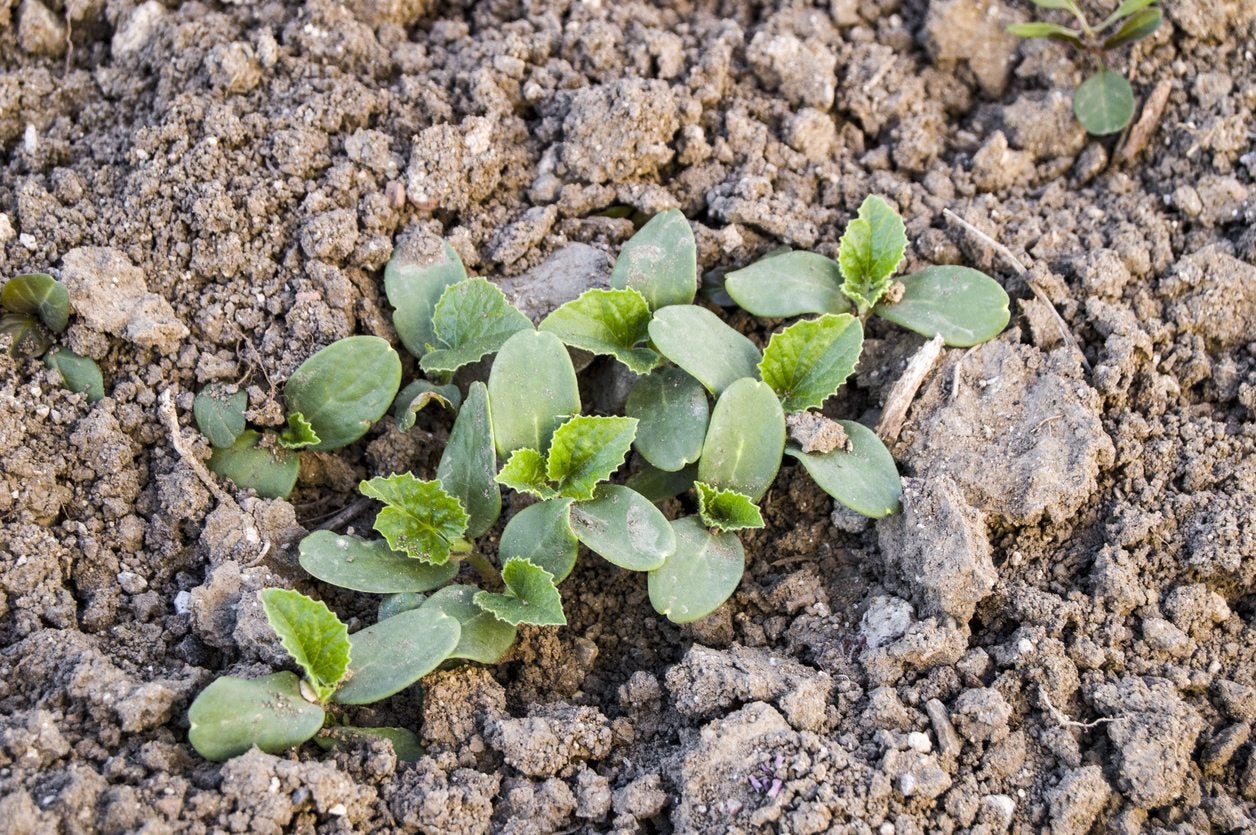Watermelon Damping Off Info – What Makes Watermelon Seedlings Die

Damping off is a problem that can affect many different species of plants. Specifically affecting seedlings, it causes the stem near the base of the plant to become weak and withered. The plant usually topples over and dies because of this. Damping off can be a particular problem with watermelons that are planted under certain conditions. Keep reading to learn more about what makes watermelon seedlings die and how to prevent damping off in watermelon plants.
Help, My Watermelon Seedlings are Dying
Watermelon damping off has a set of recognizable symptoms. It affects young seedlings, which wilt and often fall over. The lower part of the stem becomes waterlogged and girdled near the soil line. If pulled out of the ground, the plant’s roots will be discolored and stunted. These problems can be directly traced to Pythium, a family of fungi that lives in the soil. There are several species of Pythium that can lead to damping off in watermelon plants. They tend to strike in cool, moist environments.
How to Prevent Watermelon Damping Off
Since the Pythium fungus thrives in the cold and the wet, it can often be prevented by keeping seedlings warm and on the dry side. It tends to be a real problem with watermelon seeds that are sown directly in the ground. Instead, start seeds in pots that can be kept warm and dry. Don’t plant the seedlings out until they have at least one set of true leaves. Often this is enough to prevent damping off, but Pythium has been known to strike in warm soils as well. If your seedlings are already showing signs, remove the plants that are affected. Apply fungicides containing mefenoxam and azoxystrobin to the soil. Be sure to read the instructions-- only a certain amount of mefenoxam can be safely applied to plants each year. This should kill the fungus and give the remaining seedlings a chance to thrive.
Sign up for the Gardening Know How newsletter today and receive a free copy of our e-book "How to Grow Delicious Tomatoes".

The only child of a horticulturist and an English teacher, Liz Baessler was destined to become a gardening editor. She has been with Gardening Know how since 2015, and a Senior Editor since 2020. She holds a BA in English from Brandeis University and an MA in English from the University of Geneva, Switzerland. After years of gardening in containers and community garden plots, she finally has a backyard of her own, which she is systematically filling with vegetables and flowers.